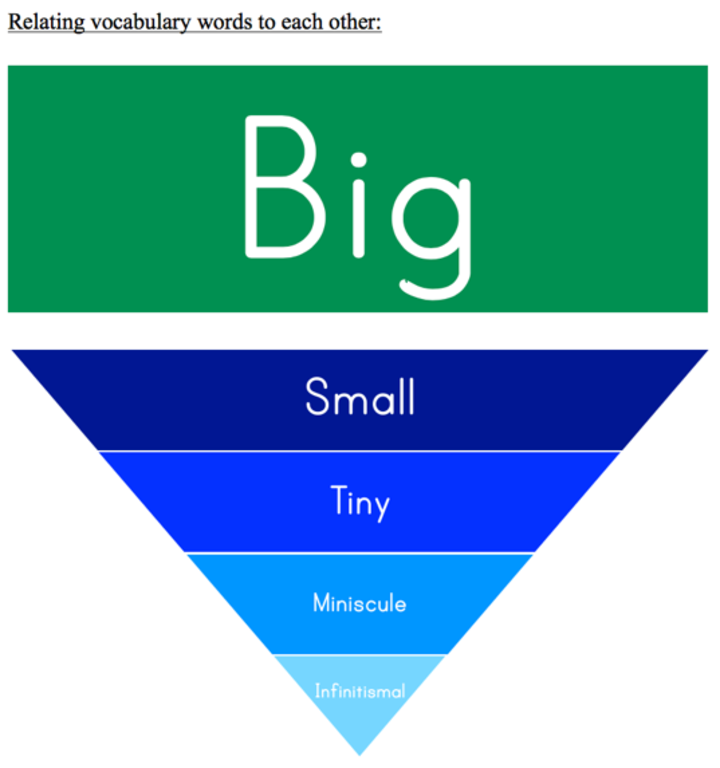Why is Vocabulary Important for Reading?
Vocabulary knowledge is one of the building blocks for successful reading comprehension along with phonological awareness and decoding. This understanding of words and word meanings helps the reader take ownership in the words themselves and therefore derive meaning from the text. Vocabulary instruction has many important facets, including multiple meanings, relationships among words, and depth of knowledge (e.g., understanding the meaning when you hear the word vs. being able to use the word in context).
Here are some ways to build vocabulary incidentally and explicitly:
- Teacher Read Aloud
- Independent Reading
- Explicit Vocabulary Word Instruction
- Word Learning Strategy Instruction (graphic organizers, context cues, morphology)
- Examples and non-examples


Outside Resources
Teaching Vocabulary
This webpage is a link to a summary of vocabulary; including tips on what a problem in this area might look like and how to help. It is part of the larger Reading Rockets website which has a wealth of resources and additional link designed to support teachers, parents and kids.
CLICK HERE TO VIEW RESOURCES FROM READING ROCKETS
Vocabulary
This link will take you to the page dedicated to student center activities in grades 2-3 and 4-5, scroll down to see the vocabulary activities. It is part of the larger Florida Center for Reading Research website which also has many resources to support teachers and parents.
CLICK HERE TO VIEW 2ND AND 3RD GRADE STUDENT CENTER ACTIVITIES
CLICK HERE TO VIEW 4TH AND 5TH GRADE STUDENT CENTER ACTIVITIES
Teach Vocabulary
These links to webpages have a quick summary of vocabulary, and explains why it should be taught, and how to teach it. This page is a part of the larger set of resources provided by the IRIS Center at Vanderbilt Peabody College.